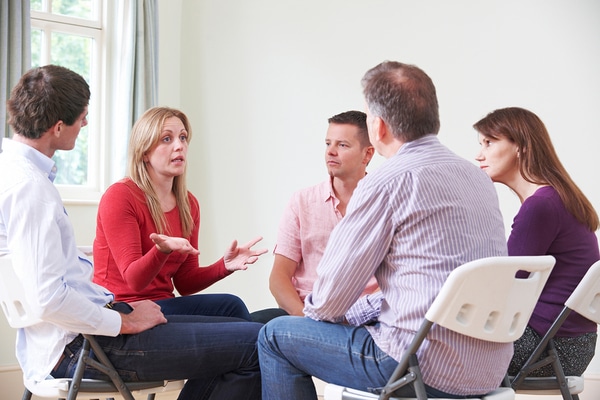
If you are being abused, help is available.
The shocking thing about being in an abusive relationship is that the situation often sneaks up on you. While this may sound strange to a person who has never been involved in the cycle of abuse, those who have had the misfortune to be in one understand that statement all too well.
Understanding the Cycle of Abuse
Consider it this way. Suppose that the first time you encountered a person, that person belittled you verbally, did some physical harm to you, or caused you to have negative feelings about yourself. You would do everything you could to ensure that your first encounter with that abusive person would be your last.
However, most often abusers do not lead with overtly abusive tactics. Rather, the cycle of abuse starts subtly and escalates over time. “Out of the Fog” explains that the abusive cycle is “the ongoing rotation between destructive and constructive behavior typical of many dysfunctional relationships and families. The abuse cycle is a repeating pattern where both the perpetrator and the victim of abuse contribute to the conditions which perpetuate the cycle.”
At each point in the cycle, the balance of power shifts from one person to the other, with neither party responding appropriately to the situation as it evolves. Typically, the cycle can be broken down into these typical phases:
Flashpoint: This is the point at which one person commits an act of abuse against the other person. The abuse can be physical, verbal, or emotional. Emotions at this moment are high for both parties, with the perpetrator exhibiting aggressive tendencies and the victim responding with surprise, fear, or shock.
Retribution: Some complicated mental gymnastics occur at this stage. The abuser may try to alleviate the tension by promising never to be abusive again. The victim may feel empowered by these promises to make demands or conditions to which the abuser must comply. However, rather than breaking the cycle of abuse, this phase only sets the stage for problems to come. The abuser works to reassure the victim that abusive incidences will not recur. Meanwhile, the victim basks in a false sense of power in the relationship.
Distraction and Resignation: As time goes on, the abuser and the abused drift back toward prior destructive patterns. Stresses of life and precipitating events lead the abuser to lash out again and again. As the cycle continues, the person dealing with the abuse often internalizes negative feelings, becoming more and more resigned to being the target of ill-treatment. Sensing this resignation, the abuser becomes more and more emboldened, and the cycle of abuse continues.
Abuse Recovery is Possible
Does this mean that stopping the cycle is impossible? If you are in an abusive relationship, there are steps you can take to end the violence. Even if you doubt it, you have the power to stop the destructive cycle and protect your physical and emotional health. The Good Men Project’s “How to Break the Cycle of Verbal and Emotional Abuse” recommends the following four steps to abuse recovery:
1) Acknowledge the abuse for what it is.
One of the most powerful tools at your disposal for stopping abuse is recognizing it when you see it. Rather than rationalizing or excusing an abuser’s bad behavior, understand that intentional behavior that hurts you physically, emotionally, or mentally is abuse. Period.
2) Get some support.
Seek out people who understand what it means to overcome abuse. Rehab centers are excellent places to find others who have experienced some of the same issues you are experiencing. Talking with supportive people can help you clearly see a path to healing.
3) Rebuild your confidence.
You are larger than the things that happen to you. In an abusive relationship, it is easy to lose your sense of self. Remember that your needs matter. Rebuild your confidence by forming relationships with others built on mutual trust and respect. Distance yourself from negative people and emotions. You deserve more.
4) Change your response.
As much as you might wish to do so, you cannot change the abusive behavior of someone else. You can, however, change your reaction to it. Break free from an abuser by refusing to give him or her the power to affect your view of yourself and your capabilities. End an abusive relationship by focusing on healing yourself first.

Finding people who will offer support is a powerful tool to help you break the cycle of abuse.
Reaching Out for Support
Rather than allowing a cycle of abuse to continue, understand that you have the power to stop it. Recognize abuse for what it is, and be determined to seek help and support available to you. Rebuild your confidence by re-connecting with who you are as a person rather than viewing yourself through the distorted lens of abuse.
We’re Here to Help
If you want help to break away from abuse, contact Harris House today. Harris House offers advice and support for victims of abuse. You can do this, and we stand ready to help.








